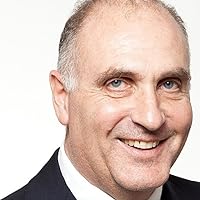Avoiding Responsibility Quotes
Quotes tagged as "avoiding-responsibility"
Showing 1-6 of 6

“One thing that you can be sure of in this world, is that nobody's responsible. The starving millions? That's someone else's fault - let them eat cake! The H-bomb? They're blown to smithereens? - God must have dropped it! The chocolate vending machine's out of order? It doesn't belong to the publican or his wife, certainly not! Nobody is who it belongs to, and nobody deals with official complaints! It restocks itself, of its own accord, totally self-perpetuating! But somebody's pocketing the non-returnable two bob bits ; if you want to know their names you can go to the devil!”
― My Fault
― My Fault

“It is clear that spiritual naturalism can be used to defend any ‘positive’, i.e. existing, norm. For it can always be argued that these norms would not be in force if they did not express some traits of human nature. [...] In fact, this form of naturalism is so wide and so vague that it may be used to defend anything. There is nothing that has ever occurred to man which could not be claimed to be ‘natural’; for if it were not in his nature, how could it have occurred to him?
Looking back at this brief survey, we may perhaps discern two main tendencies which stand in the way of adopting a critical dualism. The first is a general tendency towards monism, that is to say, towards the reduction of norms to facts. The second lies deeper, and it possibly forms the background of the first. It is based upon our fear of admitting to ourselves that the responsibility for our ethical decisions is entirely ours and cannot be shifted to anybody else; neither to God, nor to nature, nor to society, nor to history. All these ethical theories attempt to find somebody, or perhaps some argument, to take the burden from us. But we cannot shirk this responsibility. Whatever authority we may accept, it is we who accept it. We only deceive ourselves if we do not realize this simple point.”
― The Open Society and Its Enemies - Volume One: The Spell of Plato
Looking back at this brief survey, we may perhaps discern two main tendencies which stand in the way of adopting a critical dualism. The first is a general tendency towards monism, that is to say, towards the reduction of norms to facts. The second lies deeper, and it possibly forms the background of the first. It is based upon our fear of admitting to ourselves that the responsibility for our ethical decisions is entirely ours and cannot be shifted to anybody else; neither to God, nor to nature, nor to society, nor to history. All these ethical theories attempt to find somebody, or perhaps some argument, to take the burden from us. But we cannot shirk this responsibility. Whatever authority we may accept, it is we who accept it. We only deceive ourselves if we do not realize this simple point.”
― The Open Society and Its Enemies - Volume One: The Spell of Plato
“The greatest terror of experience isn't in the unknown, but in confronting the things we always knew but chose to ignore.”
―
―
All Quotes
|
My Quotes
|
Add A Quote
Browse By Tag
- Love Quotes 97k
- Life Quotes 75.5k
- Inspirational Quotes 72.5k
- Humor Quotes 43.5k
- Philosophy Quotes 29.5k
- Inspirational Quotes Quotes 27k
- God Quotes 26k
- Truth Quotes 23.5k
- Wisdom Quotes 23.5k
- Romance Quotes 23k
- Poetry Quotes 22k
- Death Quotes 20k
- Happiness Quotes 18.5k
- Life Lessons Quotes 18.5k
- Hope Quotes 18k
- Faith Quotes 18k
- Quotes Quotes 16.5k
- Inspiration Quotes 16.5k
- Spirituality Quotes 15k
- Religion Quotes 15k
- Motivational Quotes 15k
- Writing Quotes 14.5k
- Relationships Quotes 14.5k
- Life Quotes Quotes 14k
- Love Quotes Quotes 13.5k
- Success Quotes 13.5k
- Time Quotes 12.5k
- Motivation Quotes 12k
- Science Quotes 11.5k
- Knowledge Quotes 11k


